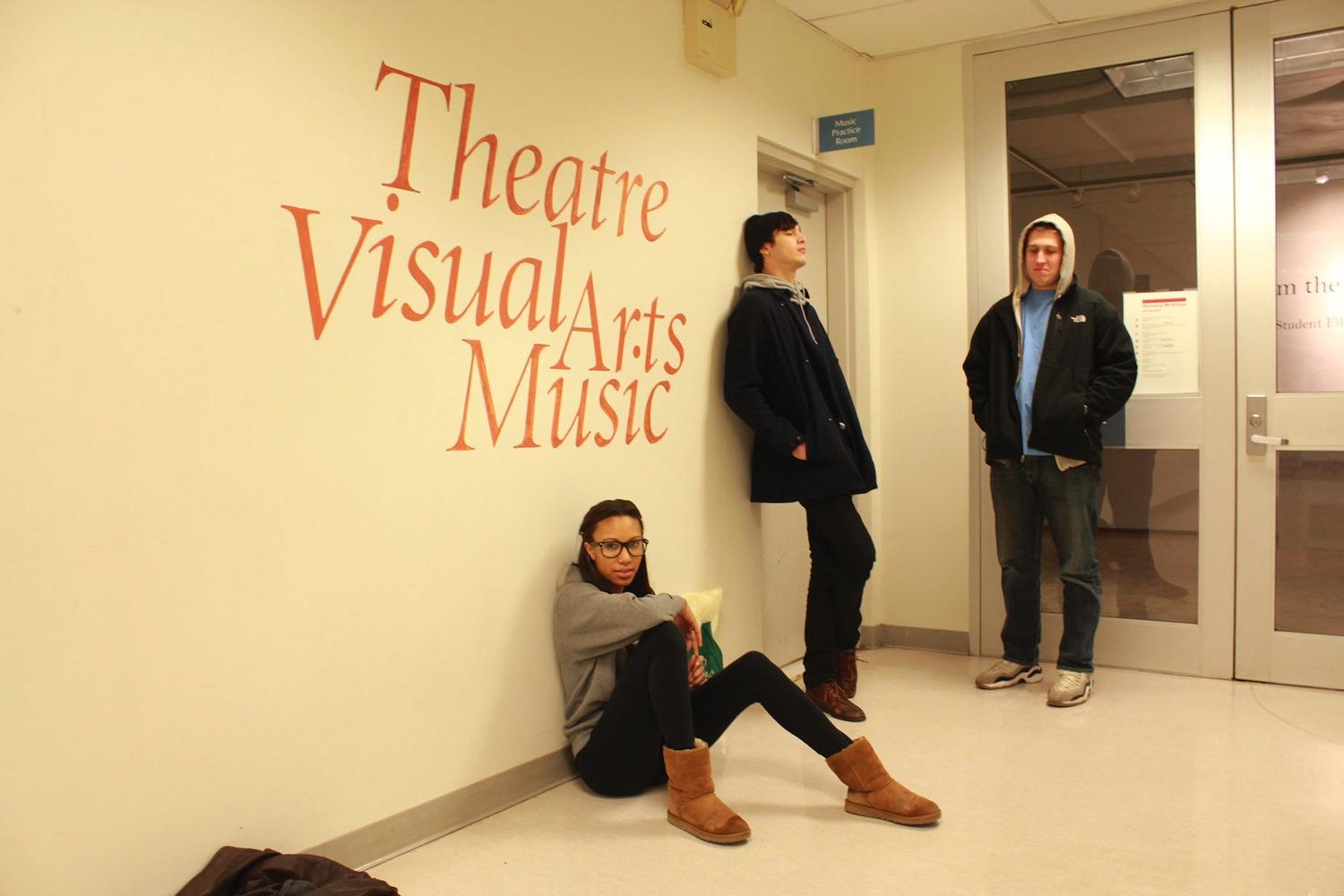Rise in Music Majors Calls for More Resources
March 7, 2012

There are 24 students in the music major this year, which is double the amount of last spring, according to Mark Mattson, associate dean of Fordham College at Lincoln Center (FCLC). As the major gains popularity on campus, many students interested in music are frustrated with what they feel is a department that lacks adequate resources for musicians.
Among the primary concerns raised is lack of space for music practice. There are two private, soundproof practice rooms with pianos located near the visual arts wing. In order to use a room, students must sign out a key with the security guard in McMahon Hall. As studying and practicing music become more popular on campus, however, students feel that two rooms are not enough to support the growing music interest.
“I think there should be more practice rooms and better pianos,” said music major Chelsea Gizzi, FCLC ’14. She said she usually goes to the music room after midnight to ensure that one will be free for her to use. “I don’t like singing in my room because my roomies are like, ‘Why are you singing in German?’’ said Gizzi, who sings in Fordham’s Liturgical Choir, Chamber Singers and Women’s Choir.
Sevin Yaraman, lecturer of art history and music, said that last spring she worked with security to develop a new system for the private practice rooms. Students registered to take private music lessons with an instructor hired through the Fordham music department could leave their name with security in McMahon to reserve the room. “If you go [to the practice rooms] and both of them are full, you have the privilege to use that room—you get priority,” Yaraman said. She said that currently eight students at FCLC are registered for private music lessons.
While the system benefits those taking private lessons, other musicians must wait until a room becomes available before they can practice an instrument or sing.
According to one McMahon security guard who wished to remain anonymous, students who need to wait for keys to the practice rooms is common. “It happens a lot,” the security guard said.
In addition to limited practice spaces on campus, some music students are also frustrated with the music classroom in Lowenstein.
Music majors at FCLC typically take classes in room 523 of the Leon Lowenstein building, where, according to music major Sara Ingle, FCLC ’12, the piano is out of tune. “The pianos are a big joke,” Ingle said. “They’re always out of tune.” Gizzi agreed. “The piano in room 523 isn’t tuned very often, which defeats the purpose of having a quality piano.”
Music majors at Fordham are required to take four semesters of music performance through one of the following venues: Concert Choir, Women’s Choir, Liturgical Choir, Concert Band, Orchestra or the Chamber Music Ensemble. While the choirs are located at both Rose Hill and FCLC, students who play instruments must travel to Rose Hill twice a week to participate in an instrumental group.
“I’ve talked to people who haven’t joined orchestra at Rose Hill because they don’t want to travel to the Bronx to take a 1.5 hour Ram Van ride during rush hour,” Ingle said.
Faith Brancale, FCLC ’14 and a visual arts major who has been playing the violin since she was three, said she travels to Rose Hill for orchestra rehearsal even though she’s not a music major or minor. “I spend double the amount of time on the Ram Van than the actual practice,” Brancale said. “[FCLC] doesn’t have an orchestra, which doesn’t make any sense considering our placement and the possible connections we should have with Lincoln Center and music schools in the area.”
Brancale said that she knows a lot of students on campus who would be interested in performing if the opportunity became available on campus.
According to Yaraman, the decision to have one orchestra located at the Rose Hill campus had to do with space and commitment. “Lots of kids are committed up there,” Yaraman said. “We don’t want to split the orchestra.” She said that in the future, as the major grows and there are enough students to support the program, they would consider an orchestra. “An orchestra is a very big enterprise—you need at least 25 to 30 students,” Yaraman said.
In addition to commuting to Rose Hill for orchestra or band, many music students travel uptown for music classes as well.
“I’m frustrated because a lot of the music classes are at Rose Hill in Faculty Memorial Hall,” Gizzi said.
Ingle said she’s taking half of her classes at Rose Hill this semester and that while the music classes at FCLC are “really great,” there aren’t enough offered every semester. As a cello player, she also feels that having a classical musical class to put on her transcript would be helpful in terms of eventually applying to grad school.
Alex Mitchell, FCLC ’12, and music minor, said part of the reason he opted out of the music major at FCLC was because he realized he was going to have to go to Rose Hill for most of his classes.
New, full-time music faculty member at FCLC, Daniel Ott, teaches courses at both Rose Hill and Lincoln Center. He said he’s seen an increase in enrollment in his Lincoln Center classes and attributes that partly to FCLC’s location.
“Being here at Lincoln Center, which is one of the major hubs of musical activity in the world, will no doubt attract some students,” Ott said. He said that having an outlet for musical performance at FCLC would be a great advantage to students interested in music.
“To have more resources available would be wonderful—whether that comes in the form of additional practice rooms or a space that’s specifically designed for music performance would be great especially as the schools continues to grow,” Ott said.









